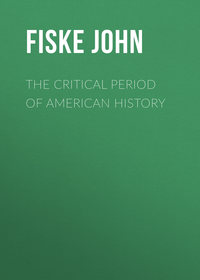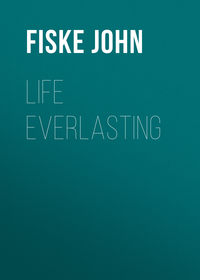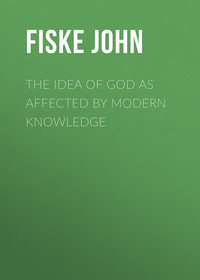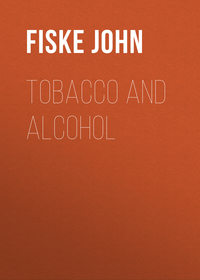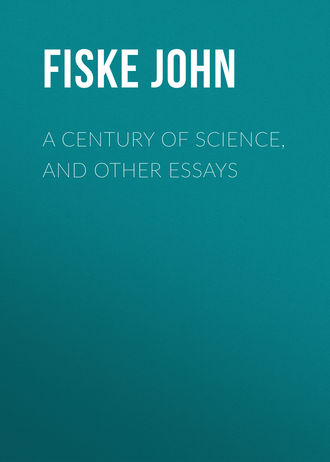 полная версия
полная версияA Century of Science, and Other Essays
So much for Bacon himself. With regard to him as possible author of the Shakespeare poems and plays, it is difficult to imagine so learned a scholar making the kind of mistakes that abound in those writings. Bacon would hardly have introduced clocks into the Rome of Julius Cæsar; nor would he have made Hector quote Aristotle, nor Hamlet study at the University of Wittenberg, founded five hundred years after Hamlet's time; nor would he have put pistols into the age of Henry IV., nor cannon into the age of King John; and we may be pretty sure that he would not have made one of the characters in "King Lear" talk about Turks and Bedlam. In this severely realistic age of ours, writers are more on their guard against such anachronisms than they were in Shakespeare's time; in his works we cannot call them serious blemishes, for they do not affect the artistic character of the plays, but they are certainly such mistakes as a scholar like Bacon would not have committed.
Deeper down lies the contrast involved in the fact that Bacon was in a high degree a subjective writer, from whom you are perpetually getting revelations of his idiosyncrasies and moods, whereas of all writers in the world Shakespeare is the most completely objective, the most absorbed in the work of creation. In the one writer you are always reminded of the man Bacon; in the other the personality is never thrust into sight. Bacon is highly self-conscious; from Shakespeare self-consciousness is absent.
The contrast is equally great in respect of humour. I would not deny that Bacon relished a joke, or could perpetrate a pun; but the bubbling, seething, frolicsome, irrepressible drollery of Shakespeare is something quite foreign to him. Read his essays, and you get charming English, wide knowledge, deep thought, keen observation, worldly wisdom, good humour, sweet serenity; but exuberant fun is not there. In writing these essays Bacon was following an example set by Montaigne, but, as contrasted with the delicate effervescent humour of the Frenchman, his style seems sober and almost insipid. Only fancy such a man trying to write "The Merry Wives of Windsor"!
Both Shakespeare and Bacon were sturdy and rapacious purloiners. They seized upon other men's bright thoughts and made them their own without compunction and without acknowledgment; and this may account for sundry similarities which may be culled from the plays and from Bacon's works, upon which Baconizing text-mongers are wont to lay great stress as proof of common authorship. Some such resemblances may be due to borrowing from common sources; others are doubtless purely fanciful; others indicate either that Shakespeare cribbed from Bacon or vice versa. Here are a few miscellaneous instances: —
Where Bacon says, "Be so true to thyself as thou be not false to others" ("Essay of Wisdom"), Shakespeare says: —
"To thine own self be true,And it must follow, as the night the day,Thou canst not then be false to any man."(Hamlet, I. iii.)This looks as if one writer might have copied from the other. If so, it is Bacon who is the thief, for the lines occur in the quarto "Hamlet" published in 1603, whereas the "Essay of Wisdom" was first published in 1612.
Again, where Bacon, in the "Essay of Gardens," says, "The breath of flowers comes and goes like the warbling of music," it reminds one strongly of the exquisite passage in "Twelfth Night" where the Duke exclaims: —
"That strain again! it had a dying fall:O, it came o'er my ear like the sweet south,That breathes upon a bank of violets,Stealing and giving odour."I have little doubt that Bacon had this passage in mind when he wrote the "Essay of Gardens," which was first published in 1625, two years later than the complete folio of Shakespeare. This effectually disposes of the attempt to cite these correspondences in evidence that Bacon wrote the plays.
Another instance is from "Richard III.:" —
"By a divine instinct men's minds mistrustEnsuing danger; as, by proof, we seeThe waters swell before a boisterous storm."Bacon, in the "Essay of Sedition," writes, "As there are … secret swellings of seas before a tempest, so there are in states." But this essay was not published till 1625, so again we find him copying Shakespeare. Many such "parallelisms," cited to prove that Bacon wrote Shakespeare's works, do really prove that he read them with great care and remembered them well, or else took notes from them.
An interesting illustration of the helpless ignorance shown by Baconizers is furnished by a remark of Sir Toby Belch in "Twelfth Night." In his instructions to that dear old simpleton, Sir Andrew Aguecheek, about the challenge, Sir Toby observes, "If thou thou'st him some thrice, it shall not be amiss." In Elizabethan English, to address a man as "thou" was to treat him as socially inferior; such familiarity was allowable only between members of the same family or in speaking to servants, just as you address your wife, and likewise the cook and housemaid, by their Christian names, while with the ladies of your acquaintance such familiarity would be rudeness. The same rule for the pronoun survives to-day in French and German, but has been forgotten in English. In the trial of Sir Walter Raleigh in 1604, Justice Coke insulted the prisoner by calling out, "Thou viper! for I thou thee, thou traitor!" Now, one of our Baconizers thinks that his idol, in writing "Twelfth Night," introduced Sir Toby's suggestion in order to recall to the audience Coke's abusive remark. Once more, a little attention to dates would have prevented the making of a bad blunder. We know from Manningham's Diary that "Twelfth Night" had been on the stage nearly two years before Raleigh's trial. On the other hand, to say that the play might have suggested to Coke his coarse speech would be admissible, but idle, inasmuch as the expression "to thou a man" was an every-day phrase in that age.
Here it naturally occurs to me to mention the "Promus," about which as much fuss has been made as if it really furnished evidence in support of the Baconian folly. There is in the British Museum a manuscript, in Bacon's handwriting, entitled "Promus of Formularies and Elegancies." "Promus" means "storehouse" or "treasury." A date at the top of the first page shows that it was begun in December, 1594; there is nothing, I believe, to show over how many years it extended. It is a scrap-book in which Bacon jotted down such sentences, words, and phrases as struck his fancy, such as might be utilized in his writings. These neatly turned phrases, these "formularies and elegancies," are gathered from all quarters, – from the Bible, from Virgil and Horace, from Ovid and Seneca, from Erasmus, from collections of proverbs in various languages, etc. As there is apparently nothing original in this scrap-bag, Mr. Spedding did not think it worth while to include it in his edition of Bacon's works, but in the fourteenth volume he gives a sufficient description of it, with illustrative extracts. In 1883 Mrs. Henry Pott published the whole of this "Promus" manuscript, and swelled it by comments and dissertations into a volume of 600 octavo pages. She had found in it several hundred expressions which reminded her of passages in Shakespeare, and so it confirmed her in the opinion which she already entertained that Bacon was the author of Shakespeare's works. Thus, when the "Promus" has a verse from Ovid, which means, "And the forced tongue begins to lisp the sound commanded," it reminds Mrs. Pott of divers lines in which Shakespeare uses the word "lisp," as for example, in "As You Like It," "you lisp and wear strange suits;" and she jumps to the conclusion that when Bacon jotted down the verse from Ovid, it was as a preparatory study toward "As You Like It," and any other play that contains the word "lisp: " therefore Bacon wrote all those plays, Q. E. D.! On the next page we find Virgil's remark, "Thus was I wont to compare great things with small," made the father of Falstaff's "base comparisons," and Fluellen's "Macedon and Monmouth," as well as honest Dogberry's "comparisons are odorous." When one reads such things, evidently printed in all seriousness, one feels like asking Mrs. Pott, in the apt words of Shakespeare's friend Fletcher, "What mare's nest hast thou found?" ("Bonduca," V. ii.)
There are many phrases, however, in the "Promus" which undoubtedly agree with phrases in the plays. They show that Bacon heard or read the plays with great interest, and culled from them his "elegancies" with no stinted hand. As for Mrs. Pott's bulky volume, it brings us so near to the final reductio ad absurdum of the Bacon theory that we hardly need spend many words upon the gross improbabilities which that theory involves. The plays of Shakespeare were universally ascribed to him by his contemporaries; many of them were published during his lifetime with his name upon the title-page as the author; all were collected and published together by Hemminge and Condell, two of his fellow actors, seven years after his death; and for more than two centuries nobody ever dreamed of looking for a different authorship, or of associating the plays with Bacon. But this Chimborazo of prima facie evidence becomes a mere mole-hill in the hands of your valiant Baconizer. It is all clear to him. Bacon did not acknowledge the authorship of these works because such literature was deemed frivolous, and current prejudices against theatres and playwrights might injure his hopes of advancement at the bar and in political life. Therefore, by some sort of private understanding with the ignorant and sordid wretch Shakespeare,42 at whose theatre they were brought out, their authorship was ascribed to him, the real author died without revealing the secret, and the whole world was deceived until the days of Delia Bacon.
But there are questions which even this ingenious hypothesis fails to answer. Why should Bacon have taken the time to write those thirty-seven plays, two poems, and one hundred and fifty-four sonnets, if they were never to be known as his works? Not for money, surely, for that grasping Shakespeare seems to have got the money as well as the fame; Bacon died a poor man. His principal aim in life was to construct a new system of philosophy; on this noble undertaking he spent such time as he could save from the exactions of his public career as member of Parliament, chancery lawyer, solicitor-general, attorney-general, lord chancellor; and he died with this work far from finished. The volumes which he left behind him were only fragments of the mighty structure which he had planned. We may well ask, Where did this overburdened writer find the time for doing work of another kind voluminous enough to fill a lifetime, and what motive had he for doing it without recompense in either fame or money? Baconizers find it strange that Shakespeare's will contains no reference to his plays as literary property. The omission is certainly interesting, since it seems to indicate that he had parted with his pecuniary interest in them, – had perhaps sold it out to the Globe Theatre. If this omission can be held to show that Shakespeare was lacking in fondness for the productions of his own genius, what shall be said of the notion that Bacon spent half his life in writing works the paternity of which he must forever disown?
This question is answered by Mr. Ignatius Donnelly, a writer who speculates with equal infelicity on all subjects, but never suffers for lack of boldness. He published in 1887 a book even bigger than that of Mrs. Pott, for it has nearly 1000 pages. Its title is, "The Great Cryptogram," and its thesis is, that Bacon really did claim the authorship of the Shakespeare plays. Only the claim was made in a cipher, and if you simply make some numbers mean some words, and other words mean other numbers, and perform a good many sums in what the Mock Turtle called "ambition, distraction, uglification, and derision," you will be able to read this claim between the lines, along with much other wonderful information. Thus does the arithmetical Donnelly carry us quite a long stride nearer to the reductio ad absurdum, or suicide point, than we were left by Mrs. Pott, with her lisping and limping comparisons.
But before we come to the jumping-off place, let us pause for a moment and take a retrospective glance at the natural history of the Bacon-Shakespeare craze. What was it that first unlocked the sluice-gates, and poured forth such a deluge of foolishness upon a sorely suffering world? It will hardly do to lay the blame upon poor Delia Bacon. Her suggestions would have borne no fruit had they not found a public, albeit a narrow one, in some degree prepared for them. Who, then, prepared the soil for the seeds of this idiocy to take root? Who but the race of fond and foolish Shakespeare commentators, with their absurd claims for their idol? During the eighteenth century Shakespeare was generally underrated. Voltaire wondered how a nation that possessed such a noble tragedy as Addison's "Cato" could endure such plays as "Hamlet" and "Othello." In the days of Scott and Burns a reaction set in; and Shakespeare worship reached its height when the Germans took it up, and, not satisfied with calling him the prince of poets and peerless master of dramatic art, began to discover in his works all sorts of hidden philosophy and impossible knowledge. Of the average German mind Lowell good-naturedly says that "it finds its keenest pleasure in divining a profound significance in the most trifling things, and the number of mare's nests that have been stared into by the German Gelehrter through his spectacles passes calculation."43 But the Germans are not the only sinners; let me cite an instance from near home. In the quarto "Hamlet" of 1603 we read: —
"Full forty years are past, their date is gone,Since happy time joined both our hearts as one:And now the blood that filled my youthful veinsRuns weakly in their pipes," etc.Whereupon Mr. Edward Vining calls upon us to observe how Shakespeare, "to whom all human knowledge seems to be but a matter of instinct, in [these lines] asserts the circulation of the blood in the veins and 'pipes,' a truth which Harvey probably did not even suspect until at least thirteen years later," etc.44 Does Mr. Vining really suppose that what Harvey did was to discover that blood runs in our veins? A little further study of history would have taught him that even the ancients knew that blood runs in the veins.45 About fourteen hundred years before "Hamlet" was written, Galen proved that it also runs in the arteries. After Galen's time, it was believed that the dark blood nourishes such plebeian organs as the liver, while the bright blood nourishes such lordly organs as the brain, and that the interchange takes place in the heart; until the sixteenth century, when Vesalius proved that the interchange does not take place in the heart, and the martyr Servetus proved that it does take place in the lungs; and so on till 1619, when Harvey discovered that dark blood is brought by the veins to the right side of the heart, and thence driven into the lungs, where it becomes bright and flows into the left side of the heart, thence to be propelled throughout the body in the arteries. That it then grows dark and returns through the veins Harvey believed, but no one could tell how, until, forty years later, Malpighi with his microscope detected the capillaries. Now to talk about Shakespeare discerning as if by instinct a truth which Harvey afterward discovered is simply silly. Instead of showing rare scientific knowledge, his remark about blood running in the veins is one that anybody might have made.
This is a fair specimen of the ignorant way in which doting commentators have built up an impossible Shakespeare, until at last they have provoked a reaction. Sooner or later the question was sure to arise, Where did your Stratford boy get all this abstruse scientific knowledge? The keynote was perhaps first sounded by August von Schlegel, who persuaded himself that Shakespeare had mastered "all the things and relations of this world," and then went on to declare that the accepted account of his life must be a mere fable. Thus we reach the point from which Delia Bacon started.
It may safely be said that all theories of Shakespeare's plays which suppose them to be attempts at teaching occult philosophical doctrines, or which endow them with any other meanings than those which their words directly and plainly convey, are a delusion and a snare. Those plays were written, not to teach philosophy, but to fill the theatre and make money. They were written by a practised actor and manager, the most consummate master of dramatic effects that ever lived; a poet unsurpassed for fertility of invention, unequalled for melody of language, unapproached for delicacy of fancy, inexhaustible in humour, profoundest of moralists; a man who knew human nature by intuition, as Mozart knew counterpoint or as Chopin knew harmony. The name of that writer was none other than William Shakespeare of Stratford-on-Avon.
It was inevitable that the Bacon folly, after once adopting such methods as those of Mrs. Pott and Mr. Donnelly, should proceed to commit suicide by piling up extravagances. By such methods one can prove anything, and accordingly we find these writers busy in tracing Bacon's hand in the writings of Greene, Marlowe, Shirley, Marston, Massinger, Middleton, and Webster. They are sure that he was the author of Montaigne's Essays, which were afterward translated into what we have always supposed to be the French original. Mr. Donnelly believes that Bacon also wrote Burton's "Anatomy of Melancholy." Next comes Dr. Orville Owen with a new cipher, which proves that Bacon was the son of Queen Elizabeth by Robert Dudley, and that he was the author of the "Faerie Queene" and other poems attributed to Edmund Spenser. Finally we have Mr. J. E. Roe, who does not mean to be outdone. He asks us what we are to think of the notion that an ignorant tinker, like John Bunyan, could have written the most perfect allegory in any language. Perish the thought! Nobody but Bacon could have done it. Of course Bacon had been more than fifty years in his grave when "Pilgrim's Progress" was published as Bunyan's. But your true Baconizer is never stopped by trifles. Mr. Roe assures us that Bacon wrote that heavenly book, as well as "Robinson Crusoe" and the "Tale of a Tub;" which surely begins to make him seem ubiquitous and everlasting. If things go on at this rate, we shall presently have a religious sect holding as its first article of faith that Francis Bacon created the heavens and the earth in six days, and rested on the seventh day.
November, 1896.
XIV
SOME CRANKS AND THEIR CROTCHETS
"Now, by two-headed Janus,Nature hath framed strange fellows in her time!" Merchant of Venice, I. i.About five-and-twenty years ago, when I was assistant librarian at Harvard University, much of my time was occupied in revising and bringing toward completion the gigantic pair of twin catalogues – of authors and subjects – which my predecessor, Dr. Ezra Abbot, had started in 1861. Twins they were in simultaneity of birth, but not in likeness of growth. Naturally, the classified catalogue was much bigger than its brother, filled more drawers, cost more money, and made a vast deal more trouble. For while some books were easy enough to classify, others were not at all easy, and sometimes curious questions would arise.
One day, for example, I happened to be looking at a pamphlet on the value of Pi; and, should any of my readers ask what that might mean, I should answer that Pi (pi) is the Greek letter which geometers use to denote the ratio of the circumference of a circle to its diameter. The arithmetical value of this symbol is 3.1415926536, and so on in an endless fraction. Is it not hard to see what there can be in such an innocent decimal to irritate human beings and destroy their peace of mind? Yet so it is. Many a human life has been wrecked upon Pi. To a certain class of our fellow-creatures its existence is maddening. It interferes with the success of a little scheme on which they have set their hearts, – nothing less than to construct a square which shall be exactly equivalent in dimensions to a given circle. Nobody has ever done such a thing, for it cannot be done. But when mathematicians tell these poor people that such is the case, they howl with rage, and, dipping their pens in gall, write book after book bristling with figures to prove that they have "squared the circle." The Harvard library does not buy such books, but it accepts all manner of gifts, and has thus come to contain some queer things.
When I consulted the subject catalogue, to see under what head it had been customary to classify these lucubrations on Pi, I found, sure enough, that it was Mathematics § Circle-Squaring. Following this cue, I explored the drawers in other directions, and found books on "perpetual motion" formed a section under Physics, while crazy interpretations of the book of Daniel were grouped along with works of solid Biblical scholarship by such eminent writers as Reuss and Kuenen and Cheyne. Clearly, here was a case for reform. The principle of classification was faulty. In one sense, the treatment of the quadrature of the circle may be regarded as a section under the general head of mathematics; as, for example, when Lindemann, in 1882, showed that Pi cannot be represented as the root of any algebraic equation with rational coefficients. But our circle-squaring literature is very different. It is usually written by persons whose mathematical horizon scarcely extends beyond long division: just as the writers on perpetual motion know nothing of physics; just as so many expositors have dealt with the ten-horned beast in blissful ignorance alike of ancient history and of the principles of literary criticism. What all such books illustrate, however various may be their ostensible themes, is the pathology of the human mind. They are specimens of Insane Literature. As such they have a certain sort of interest; and to any rational being it is the only sort they can have.
So I culled from many a little drawer the cards appertaining to divers printed products of morbid cerebration, and gathered them into a class of Insane Literature; and under this rubric such sections as Circle-Squaring, Perpetual Motion, Great Pyramid, Earth not a Globe, etc., were evidently in their proper place. The name of the class was duly inscribed on the outside of its drawer, and the matter seemed happily disposed of.
The way of the reformer, however, is beset with difficulties, and it is seldom that his first efforts are crowned with entire success. Not many days had elapsed since this emendation of the catalogue, when one of my assistants brought me the card of a book on the Apocalypse, by a certain Mr. Smallwit, and called my attention to the fact that it was classified as Insane Literature.
"Very well," I said, "so it is."
"I don't doubt it, sir," said she; "but the author lives over in Chelsea, and I saw him this morning in one of the alcoves. Perhaps, if he were to look in the catalogue and see how his book is classified, he mightn't altogether like it. Then, as I looked a little further along the cards, I came upon this pamphlet by Herr Dummkopf, of Breslau, upsetting the law of gravitation; and – do you know? – Herr Dummkopf is spending the winter here in Cambridge!"
"To be sure," said I, "it was very stupid of me not to foresee such cases. Of course we can't call a man a fool to his face. In a catalogue which marshals the quick along with the dead some heed must be paid to the amenities of life. Pray get and bring me all those cards."
By the time they arrived a satisfactory solution of the difficulty had suggested itself. I told the assistant simply to scratch out "Insane," and put "Eccentric" instead. For while the harsh Latin epithet would of course infuriate Messrs. Dummkopf, Smallwit & Co., it might be doubted if their feelings would be hurt by the milder Greek word. Some people of their stripe, to whom notoriety is the very breath of their nostrils, would consider it a mark of distinction to be called eccentric. At all events, the harshness would be delicately veiled under a penumbra of ambiguity.
Thus the class Eccentric Literature was established in our catalogue, and there it has remained, while the books in the library have increased from a hundred thousand to half a million. Once or twice, I am told, has some disgusted author uttered a protest, but the quiet of Gore Hall has not been disturbed thereby. Care is needed in treating such a subject, and my rule was that no amount of mere absurdity, no extremity of dissent from generally received opinions, should consign a book to the class of Eccentric Literature, unless it showed unmistakable symptoms of crankery, or the buzzing of a bee in the author's bonnet. This rule has been strictly followed. One lot of books – the Bacon-Shakespeare stuff – which I intended to put in this class, but forgot to do so because of sore stress of work, still remain absurdly grouped along with the books on Shakespeare written by men in their senses. With this exception, the class offers us a fairly comprehensive view of the literature of cranks.


